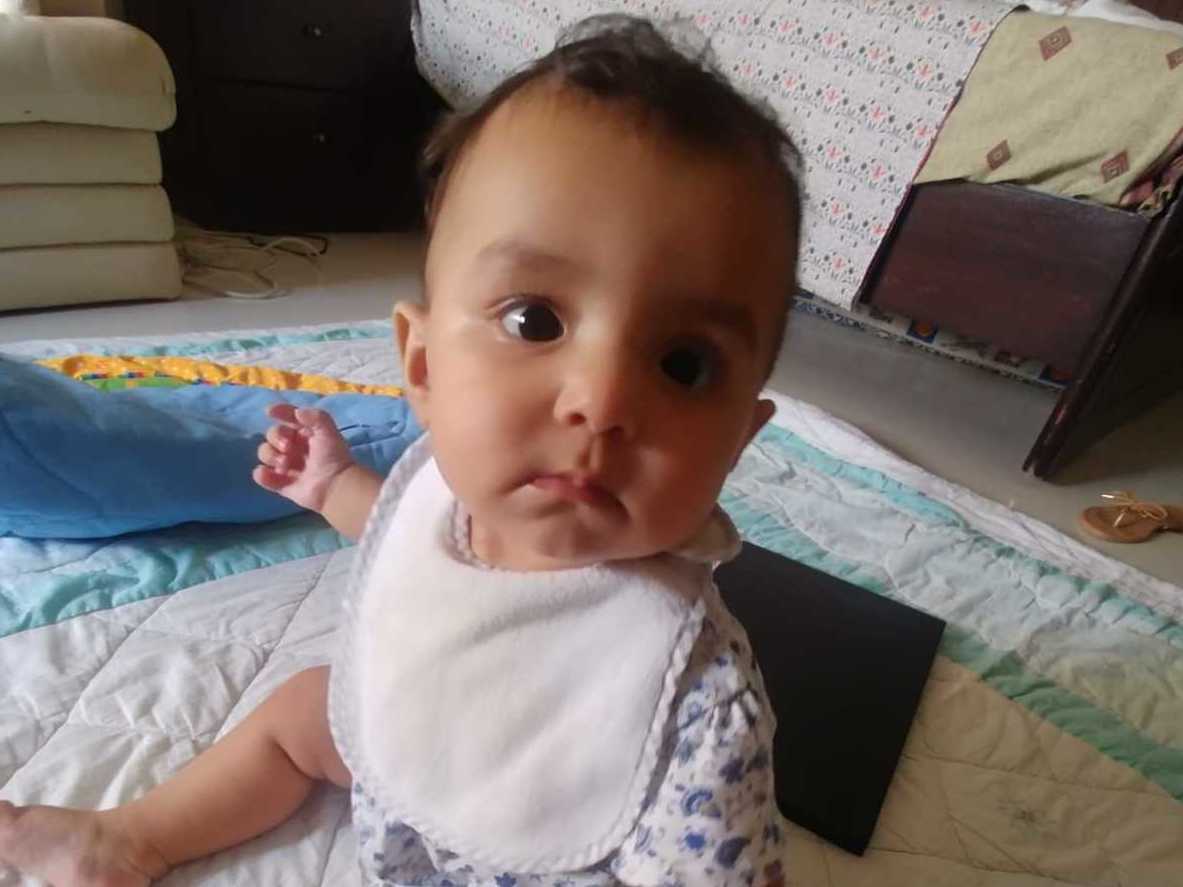Home Office reverses refusal to grant UK resident permission to bring her adopted baby home
‘Since February the Home Office has stopped me from getting on with my life, prevented me from working. I was subjected to enormous anxiety and left feeling traumatised in a highly vulnerable state’

The Home Office has performed a U-turn on its decision to refuse UK entry to a baby whose sole carer and future adoptive mother is a British resident, days after the decision was reported by The Independent.
Nina Saleh, a Norwegian national who lives in London and holds permanent UK residency, travelled to Pakistan last November after she was approved for adoption as a single parent by British authorities.
She was matched with Pakistani national Sofia, who was then less than a month old.
For a British resident to adopt a child from overseas they must be approved by UK adoption authorities and obtain a certificate of eligibility from the Department for Education, and then complete the necessary legal requirements in the country of the child’s origin, before formalising the adoption in Britain.
Ms Saleh did everything that was required of her only to be refused a UK visa for Sofia by the Home Office, which turned her application down on grounds “adoptions that have taken place in Pakistan cannot be legally recognised in the UK” – despite the fact she was unable to adopt the child precisely because she had not yet returned to Britain.
Ms Saleh reapplied numerous times, making it clear that she had not yet formally adopted Sofia, but received the same response.
With no family in Pakistan, she has for the last seven months been renting a room in Karachi where, fearful of being targeted as a single woman with a baby, she said she felt they were being “held hostage”.
She described the conditions they are living in as “unbearable” with electricity that disappears for two hours at a time, meaning surviving without a fan in temperatures that can exceed 40 degrees.
“She’s seven months old, being confined to a room is not exactly the life I envisaged for her. She has missed out on so much crucial development because we’ve been stuck here. How can I make her feel comfortable in an environment that is alien to me?” she said.
“She’s my first child, and I’m without family friends and a network in a foreign country. This is supposed to be the most joyous time of my life, with my baby, showing her precious moments to my family. Instead I’m alone and stressed beyond belief.”
The Independent reported on Ms Saleh’s plight on 17 June, prompting a backlash from politicians who accused the Home Office of “trampling” on the rights of families.
The Norweigian national’s solicitor, Saimah Razzaq, received an email from the Home Office four days later stating that the decisions to refuse her application had been overturned.
The email read: “Following a reconsideration of Ms Saleh’s application, a decision has been taken to withdraw the previous refusals […] and to issue your client with an EEA [European Economic Area] family permit.”
Ms Saleh said the repeated refusals from the Home Office over the last four months had left her feeling “traumatised in a highly vulnerable state” and said the media pressure had been “instrumental” in getting the wrong decision overturned.
“Since February they have stopped me from getting on with my life, prevented me from working. I was subjected to enormous anxiety,” she added.
“I think it is alarming to see how unprofessional the department is. I don’t feel the problem is restricted to lack of training and experience. It’s more serious. It’s how they think the law doesn’t apply to them and they know there are no consequences to their actions.
“This combined gives them an enormous power to be as hostile and unjust as they wish.”
Ms Razzaq, a senior immigration caseworker and supervisor at Immigration Advice Service (IAS), said it was “alarming” that cases routinely had to be brought into the limelight by the media to “spur the Home Office into action and to obtain the correct verdict”.
She added: “The government have the resources, but are failing time and time again to implement them. We hope that this will now be a speedy process for Nina.”
The Home Office confirmed that Ms Saleh’s application had now been successful.
Subscribe to Independent Premium to bookmark this article
Want to bookmark your favourite articles and stories to read or reference later? Start your Independent Premium subscription today.

Join our commenting forum
Join thought-provoking conversations, follow other Independent readers and see their replies